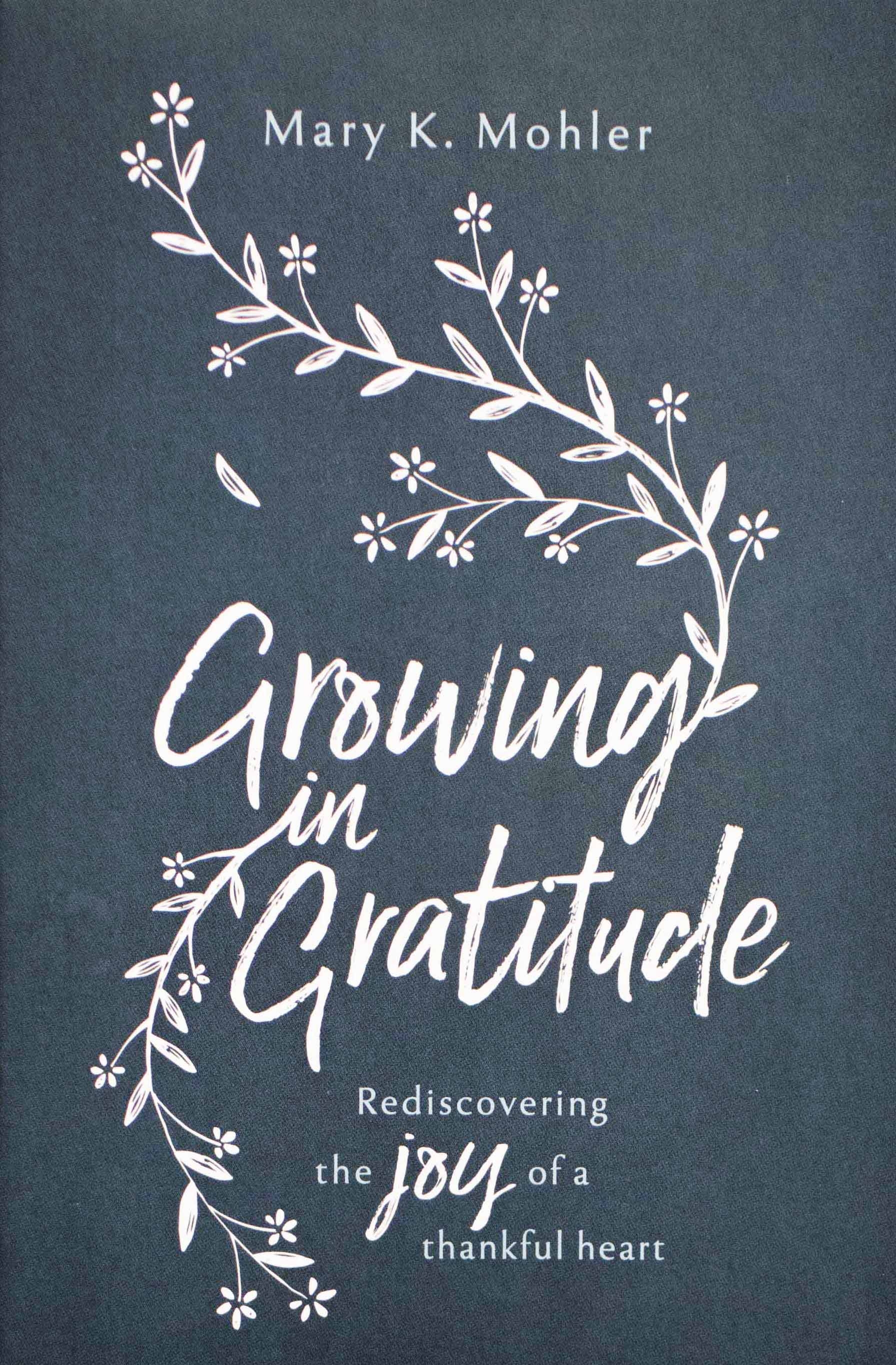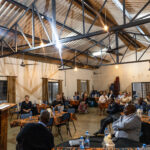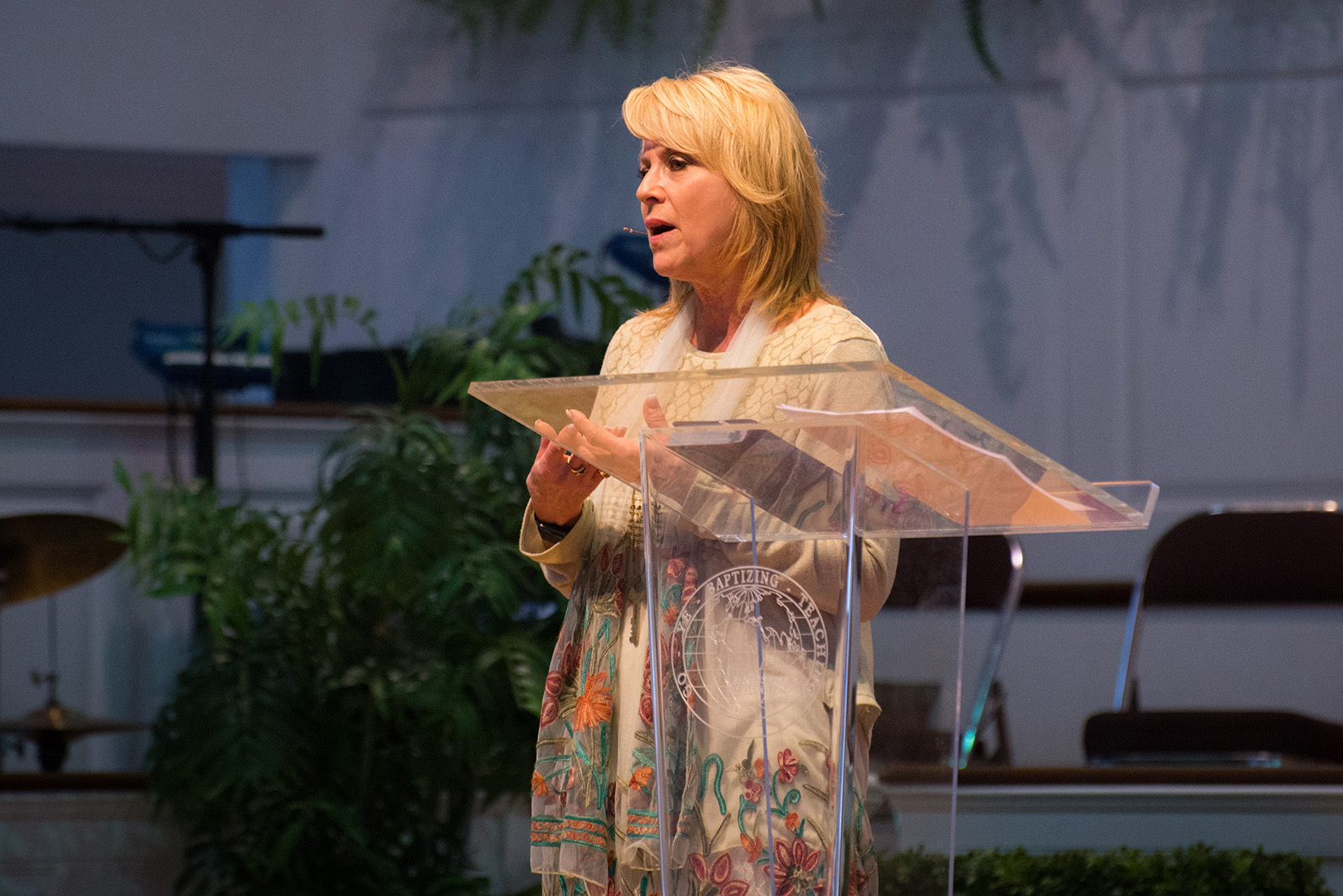
Ronnie Floyd explores 5 facets of ‘Living Fit’
 NASHVILLE (BP) — All areas of life — spiritual, physical, emotional, financial and relational — are connected, Ronnie Floyd, former president of the Southern Baptist Convention who now leads the National Day of Prayer Task Force, writes in a new book.
NASHVILLE (BP) — All areas of life — spiritual, physical, emotional, financial and relational — are connected, Ronnie Floyd, former president of the Southern Baptist Convention who now leads the National Day of Prayer Task Force, writes in a new book.
In “Living Fit: Making Your Life Count by Pursuing a Healthy You,” Floyd aims to help readers “live in the highest way for our Lord and for others.”
“Life is not a dress rehearsal. We have one shot with our life. Living Fit prepares and equips people to make their lives count,” said Floyd, senior pastor of Cross Church in northwest Arkansas.
“I hope readers grow to understanding God wants to use them in a great way to live out God’s purpose in their life,” he said. “The healthier they are personally, the greater the impact will be in their life.”
Within the five areas of life, Floyd has observed that Christians generally neglect the physical aspect of healthy living.
“People know the other areas are important, but living fit physically seems to be dismissed or ranked lower in the order of priorities,” he said.
“Additionally, some Christ followers have convinced themselves they are physically invincible. We are not. I cannot add days to my life but I can add value to the days I have when I am living fit physically. A person is not able to go places and do things their body is unable to take them.”
Floyd also observes that most Christians live as though their spiritual lives are disconnected from the other areas of life.
The typical Christ follower will check his or her spiritual life gauge, he said, and if it is pointing toward health, they assume their entire life is healthy. Yet, the reality is, life does not work that way; it is not just one part but many parts of a whole.
Living Fit was written with both individuals and groups in mind. Pastors, Sunday School teachers or small group leaders can teach the content of the book in five core messages or go deeper and teach it in 20 sessions.
“There is a deep hunger in the lives of people to live holistically,” Floyd said. “They just may not know how to do it or believe they can do so.”
Holistic living, Floyd added, nurtures the prayer life of an individual as well as a congregation. And as president of the National Day of Prayer Task Force, individual and corporate prayer is a personal passion of Floyd’s.
“The more people grasp their own life and the lives of other people, the more they will be able to engage in communication with God effectively,” he said. “Being aware of yourself and the true health of your entire life will help you pray more effectively.
“Additionally, if you know how to think holistically, you’ll recognize areas of weakness in your life. This will give you matters to pray about related to your future. The healthier you are holistically, the more effective you will be in praying with and for others.”
Ultimately, Floyd wants Living Fit readers to live the fullest life they can to bring God glory here on earth, and best carry out His will.
B&H Publishing Group is a division of LifeWay Christian Resources of the Southern Baptist Convention.
**********
Mary Mohler turns to Scripture for ‘Growing in Gratitude’
LOUISVILLE, Ky. (BP) — Gratitude is a deeply theological issue, Mary Mohler writes in “Growing in Gratitude: Rediscovering the Joy of a Thankful Heart.”
 Mohler traces the roots of gratitude in the Bible and provides application for readers in her first book, a new release from The Good Book Company.
Mohler traces the roots of gratitude in the Bible and provides application for readers in her first book, a new release from The Good Book Company.
Mohler, wife of Southern Baptist Theological Seminary President R. Albert Mohler Jr., noted in an interview, “We cultivate gratitude by understanding that it’s so much more than counting our blessings. In Scripture, we’re told so many times to praise the Lord, to be thankful, in all circumstances not for all circumstances. We’re supposed to be abounding with thanksgiving, so I take that very seriously.”
Understanding that kind of gratitude requires understanding Scripture, Mohler writes. From the garden of Eden to salvation, she relays the role gratitude plays in Scripture and in the lives of Christians. Scripture helps increase gratitude in many ways, Mohler writes, recommending praying through the Psalms, which “can do nothing but increase our gratitude.”
Gratitude is having an awe of God, a constant awareness of who He is, who He reveals Himself to be in Scripture, Mohler writes, calling Christians to gratitude in good times and hard times. A “natural gratitude,” she explains, is a gratitude for gifts from the Lord. A “gracious gratitude” is a gratitude simply for who God is. Both are necessary.
“It’s much easier to be grateful when things are going well, but we have to work hard to remain grateful when life hurts,” she said. “It seems almost foolish to thank God when things are hard. But I think that’s biblical too. And we see that lived out in [the apostle] Paul’s life. He asked three times for his thorn to be taken away. It wasn’t.”
A heart of gratitude can easily be hindered by hardship, Mohler acknowledged. Christians can be distracted and distraught over the lostness of friends, by busyness, by discontentment, and by doubt and guilt. In all of these circumstances, it is easy to lose sight of the truth, to be robbed of any hint of thankfulness. But God’s Word is clear, she said.
“Scripture teaches us in Jude that ‘Christ will present us blameless before the presence of His glory with great joy.’ How can we not overflow with gratitude for that?”
One way Mohler encourages readers to practice gratitude is to keep a “blessings” journal and a “thorns” journal. Because of the Lord’s sovereignty, Christians can express gratitude for them nonetheless, she said.
“We can thank the Lord for the resolve that our thorn in the flesh will not be the hallmark of our life. We will boldly accept the good and the bad. We can thank Him for choosing us to walk through this particular adversity for a particular reason — even if we won’t know that reason this side of heaven. We can thank Him for the lesson we are learning in the process, and for the people we are perhaps unknowingly encouraging and inspiring along the way.”
Mohler not only recommends thankfulness toward God but also acts of gratitude toward others. Writing notes of gratitude can bless others, she writes, and the Lord can use those gestures to grow gratitude in the hearts of others.























